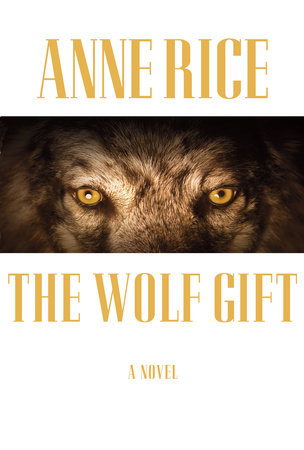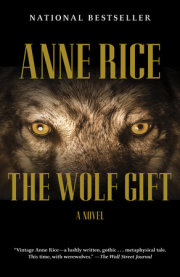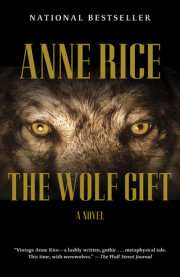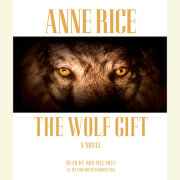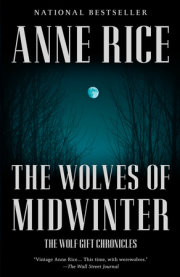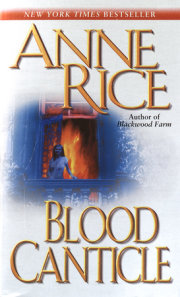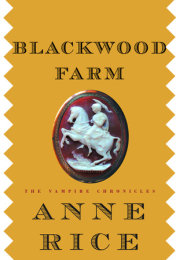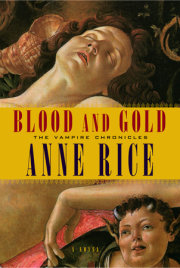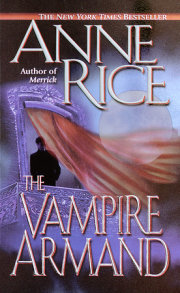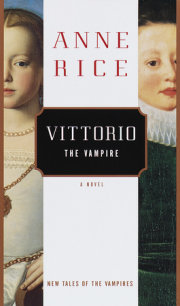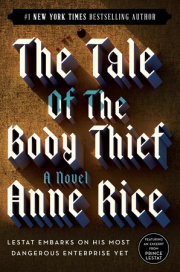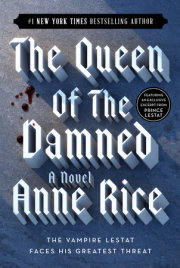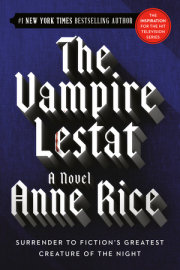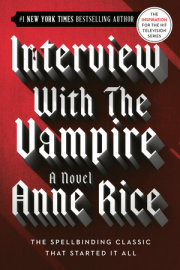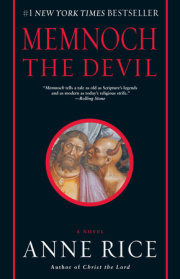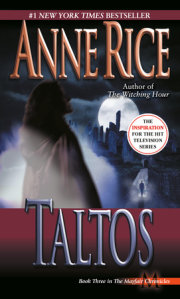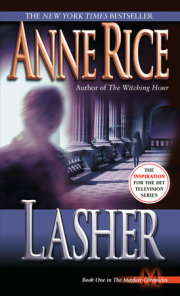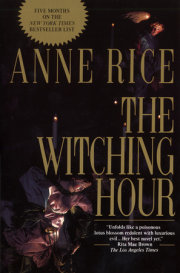I
Reuben was a tall man, well over six feet, with brown curly hair and deep-set blue eyes. “Sunshine Boy” was his nickname and he hated it; so he tended to repress what the world called an irresistible smile. But he was a little too happy right now to put on his studious expression, and try to look older than his twenty-three years.
He was walking up a steep hill in the fierce ocean wind with an exotic and elegant older woman named Marchent Nideck and he really loved all she was saying about the big house on the cliff. She was lean with a narrow beautifully sculpted face, and that kind of yellow hair that never fades. She wore it straight back from her forehead in a soft wavy swinging bob that curled under just above her shoulders. He loved the picture she made in her long brown knit dress and high polished brown boots.
He was doing a story for the
San Francisco Observer on the giant house and her hopes of selling it now that the estate had at last been settled, and her great-uncle Felix Nideck had been declared officially dead. The man had been gone for twenty years, but his will had only just been opened, and the house had been left to Marchent, his niece.
They’d been walking the forested slopes of the property since Reuben arrived, visiting a ramshackle old guesthouse and the ruin of a barn. They’d followed old roads and old paths lost in the brush, and now and then come out on a rocky ledge above the cold iron-colored Pacific, only to duck back quickly into the sheltered and damp world of gnarled oak and bracken.
Reuben wasn’t dressed for this, really. He’d driven north in his usual “uniform” of worsted-wool blue blazer over a thin cashmere sweater, and gray slacks. But at least he had a scarf for his neck that he’d pulled from the glove compartment. And he really didn’t mind the biting cold.
The huge old house was wintry with deep slate roofs and diamond-pane windows. It was built of rough-faced stone, and had countless chimneys rising from its steep gables, and a sprawling conservatory on the west side, all white iron and glass. Reuben loved it. He’d loved it in the photographs online but nothing had prepared him for its solemn grandeur.
He’d grown up in an old house on San Francisco’s Russian Hill, and spent a lot of time in the impressive old homes of Presidio Heights, and the suburbs of San Francisco, including Berkeley, where he’d gone to school, and Hillsborough, where his late grandfather’s half-timber mansion had been the holiday gathering place for many a year. But nothing he had ever seen could compare to the Nideck family home.
The sheer scale of this place, stranded as it was in its own park, suggested another world.
“The real thing,” he’d said under his breath the moment he’d seen it. “Look at those slate roofs, and those must be copper gutters.” Lush green vines covered over half the immense structure, reaching all the way to the highest windows, and he’d sat in his car for a long moment, kind of pleasantly astonished and a little worshipful, dreaming of owning a place like this someday when he was a famous writer and the world beat too broad a path to his door.
This was turning out to be just a glorious afternoon.
It had hurt him to see the guesthouse dilapidated and unlivable. But Marchent assured him the big house was in good repair.
He could have listened to her talk forever. Her accent wasn’t British exactly, or Boston or New York. But it was unique, the accent of a child of the world, and it gave her words a lovely preciseness and silvery ring.
“Oh, I know it’s beautiful. I know it’s like no place else on the California coast. I know. I know. But I have no choice but to get rid of all of it,” she explained. “There comes a time when a house owns you and you know you have to get free of it, and go on with the rest of your life.” Marchent wanted to travel again. She confessed she’d spent precious little time here since Uncle Felix disappeared. She was headed down to South America as soon as the property was sold.
“It breaks my heart,” Reuben said. That was too damn personal for a reporter, wasn’t it? But he couldn’t stop himself. And who said he had to be a dispassionate witness? “This is irreplaceable, Marchent. But I’ll write the best story I can on the place. I’ll do my best to bring you a buyer, and I can’t believe it will take that long.”
What he didn’t say was
I wish I could buy this place myself. And he’d been thinking about that very possibility ever since he’d first glimpsed the gables through the trees.
“I’m so glad the paper sent you, of all people,” she said. “You’re passionate and I like that so very much.”
For one moment, he thought, Yes, I’m passionate and I want this house, and why not, and when will an opportunity like this ever come again? But then he thought of his mother and of Celeste, his petite brown-eyed girlfriend, the rising star in the district attorney’s office, and how they’d laugh at the idea, and the thought went cold.
“What’s wrong with you, Reuben, what’s the matter?” asked Marchent. “You had the strangest look in your eye.”
“Thoughts,” he said, tapping his temple. “I’m writing the piece in my head. ‘Architectural jewel on the Mendocino coast, first time on the market since it was built.’ ”
“Sounds good,” she said. There was that faint accent again, of a citizen of the world.
“I’d give the house a name if I bought it,” said Reuben, “you know, something that captured the essence of it. Nideck Point.”
“Aren’t you the young poet,” she said. “I knew it when I saw you. And I like the pieces you’ve written for your paper. They have a distinct character. But you’re writing a novel, aren’t you? Any young reporter your age should be writing a novel. I’d be ashamed of you if you weren’t.”
“Oh, that’s music to my ears,” he confessed. She was so beautiful when she smiled, all the fine lines of her face seemingly so eloquent and pretty. “My father told me last week that a man of my age has absolutely nothing to say. He’s a professor, burnt out, I might add. He’s been revising his ‘Collected Poems’ for ten years, since he retired.” Talking too much, talking too much about himself, not good at all.
His father might actually love this place, he thought. Yes, Phil Golding was in fact a poet and he would surely love it, and he might even say so to Reuben’s mother who would scoff at the whole idea. Dr. Grace Golding was the practical one and the architect of their lives. She was the one who’d gotten Reuben his job at the
San Francisco Observer, when his only qualification was a master’s in English literature and yearly world travel since birth.
Grace had been proud of his recent investigative pieces, but she’d cautioned that this “real estate story” was a waste of his time.
“There you go again, dreaming,” Marchent said. She put her arm around him and actually kissed him on the cheek as she laughed. He was startled, caught unawares by the soft pressure of her breasts against him and the subtle scent of a rich perfume.
“Actually, I haven’t accomplished one single thing in my life yet,” he said with an ease that shocked him. “My mother’s a brilliant surgeon; my big brother’s a priest. My mother’s father was an international real estate broker by the time he was my age. But I’m a nothing and a nobody, actually. I’ve only been with the paper six months. I should have come with a warning label. But believe me, I’ll make this a story you’ll love.”
“Rubbish,” she said. “Your editor told me your story on the Greenleaf murder led to the arrest of the killer. You are the most charming and self-effacing boy.”
He struggled not to blush. Why was he admitting all these things to this woman? Seldom if ever did he make self-deprecating statements. Yet he felt some immediate connection with her he couldn’t explain.
“That Greenleaf story took less than a day to write,” he murmured. “Half of what I turned up on the suspect never saw print at all.”
She had a twinkle in her eye. “Tell me—how old are you, Reuben? I’m thirty-eight. How is that for total honesty? Do you know many women who volunteer that they’re thirty-eight?”
“You don’t look it,” he said. And he meant it. What he wanted to say was
You’re rather perfect, if you ask me. “I’m twenty-three,” he confessed.
“Twenty-three? You’re just a boy.”
Of course. “Sunshine Boy,” as his girlfriend Celeste always called him. “Little Boy,” according to his big brother, Fr. Jim. And “Baby Boy,” according to his mother, who still called him that in front of people. Only his dad consistently called him Reuben and saw only him when their eyes met.
Dad, you should see this house! Talk about a place for writing, talk about a getaway, talk about a landscape for a creative mind.
He shoved his freezing hands in his pockets and tried to ignore the sting of the wind in his eyes. They were making their way back up to the promise of hot coffee and a fire.
“And so tall for that age,” she said. “I think you’re uncommonly sensitive, Reuben, to appreciate this rather cold and grim corner of the earth. When I was twenty-three I wanted to be in New York and Paris. I was in New York and Paris. I wanted the capitals of the world. What, have I insulted you?”
“No, certainly not,” he said. He was reddening again. “I’m talking too much about myself, Marchent. My mind’s on the story, never fear. Scrub oak, high grass, damp earth, ferns, I’m recording everything.”
“Ah yes, the fresh young mind and memory, nothing like it,” she said. “Darling, we’re going to spend two days together, aren’t we? Expect me to be personal. You’re ashamed of being young, aren’t you? Well, you needn’t be. And you’re distractingly handsome, you know, why you’re just about the most adorable boy I’ve ever seen in my entire life. No, I mean it. With looks like yours, you don’t have to be much of anything, you know.”
He shook his head. If she only knew. He hated it when people called him handsome, adorable, cute, to die for. “And how will you feel if they ever stop?” his girlfriend Celeste had asked him. “Ever think about that? Look, Sunshine Boy, with me, it’s strictly your looks.” She had a way of teasing with an edge, Celeste did. Maybe all teasing had an edge.
“Now, I really have insulted you, haven’t I?” asked Marchent. “Forgive me. I think all of us ordinary mortals tend to mythologize people as good-looking as you. But of course what makes you so remarkable is that you have a poet’s soul.”
They had reached the edge of the flagstone terrace.
Something had changed in the air. The wind was even more cutting. The sun was indeed dying behind the silver clouds and headed for the darkening sea.
She stopped for a moment, as if to catch her breath, but he couldn’t tell. The wind whipped the tendrils of her hair around her face, and she put a hand up to shelter her eyes. She looked at the high windows of the house as if searching for something, and there came over Reuben the most forlorn feeling. The loneliness of the place pressed in.
They were miles from the little town of Nideck and Nideck had, what, two hundred real inhabitants? He’d stopped there on the way in and found most of the shops on the little main street were closed. The bed-and-breakfast had been for sale “forever,” said the clerk at the gas station, but yes, you have cell phone and Internet connections everywhere in the county, no need to worry about that.
Right now, the world beyond this windswept terrace seemed unreal.
“Does it have ghosts, Marchent?” he asked, following her gaze to the windows.
“It doesn’t need them,” she declared. “The recent history is grim enough.”
“Well, I love it,” he said. “The Nidecks were people of remarkable vision. Something tells me you’ll get a very romantic buyer, one who can transform it into a unique and unforgettable hotel.”
“Now that’s a thought,” she said. “But why would anyone come here, in particular, Reuben? The beach is narrow and hard to reach. The redwoods are glorious but you don’t have to drive four hours from San Francisco to reach glorious redwoods in California. And you saw the town. There is nothing here really except Nideck Point, as you call it. I have a suffocating feeling sometimes that this house won’t be standing much longer.”
“Oh, no! Let’s not even think of that. Why, no one would dare—.”
She took his arm again and they moved on over the sandy flags, past his car, and towards the distant front door. “I’d fall in love with you if you were my age,” she said. “If I’d met anyone quite as charming as you, I wouldn’t be alone now, would I?”
“Why would a woman like you ever have to be alone?” he asked. He had seldom met someone so confident and graceful. Even now after the trek in the woods, she looked as collected and groomed as a woman shopping on Rodeo Drive. There was a thin little bracelet around her left wrist, a pearl chain, he believed they called it, and it gave her easy gestures an added glamour. He couldn’t quite tell why.
There were no trees to the west of them. The view was open for all the obvious reasons. But the wind was positively howling off the ocean now, and the gray mist was descending on the last sparkle of the sea. I’ll get the mood of all this, he thought. I’ll get this strange darkening moment. And a little shadow fell deliciously over his soul.
He wanted this place. Maybe it would have been better if they’d sent someone else to do this story, but they’d sent him. What remarkable luck.
“Good Lord, it’s getting colder by the second,” she said as they hurried. “I forget the way the temperature drops on the coast here. I grew up with it, but I’m always taken by surprise.” Yet she stopped once more and looked up at the towering façade of the house as though she was searching for someone, and then she shaded her eyes and looked out into the advancing mist.
Yes, she may come to regret selling this place terribly, he thought. But then again, she may have to. And who was he to make her feel the pain of that if she didn’t want to address it herself?
For a moment, he was keenly ashamed that he himself had the money to buy the property and he felt he should make some disclaimer, but that would have been unspeakably rude. Nevertheless, he was calculating and dreaming.
Copyright © 2012 by Anne Rice. All rights reserved. No part of this excerpt may be reproduced or reprinted without permission in writing from the publisher.

